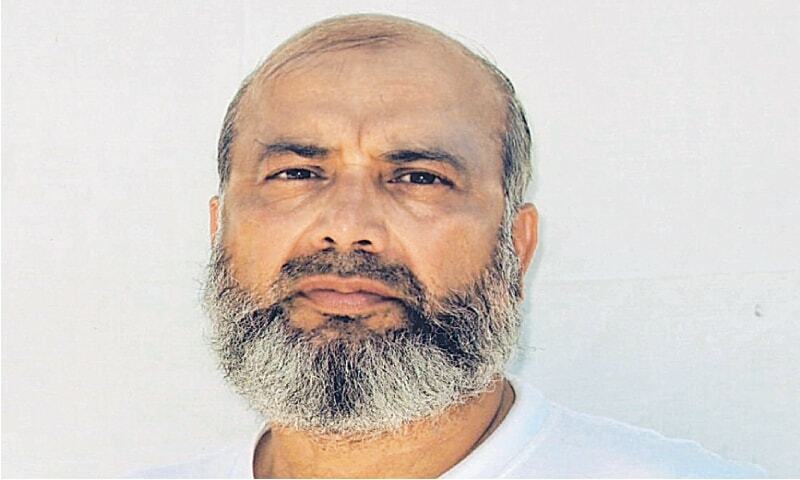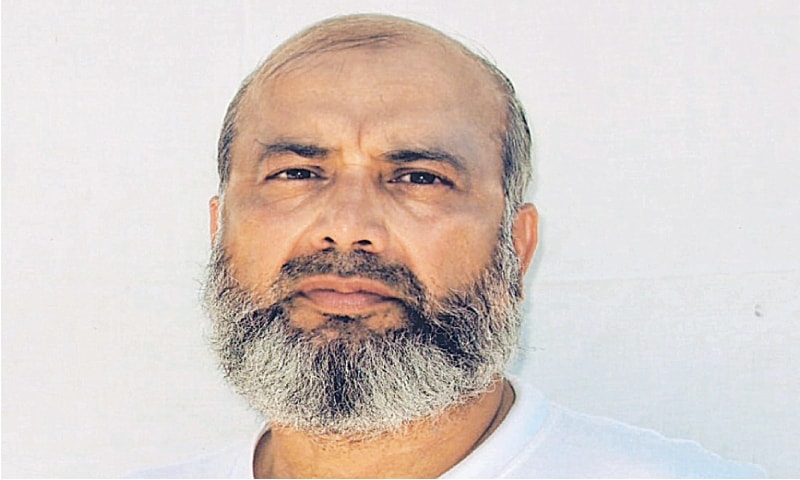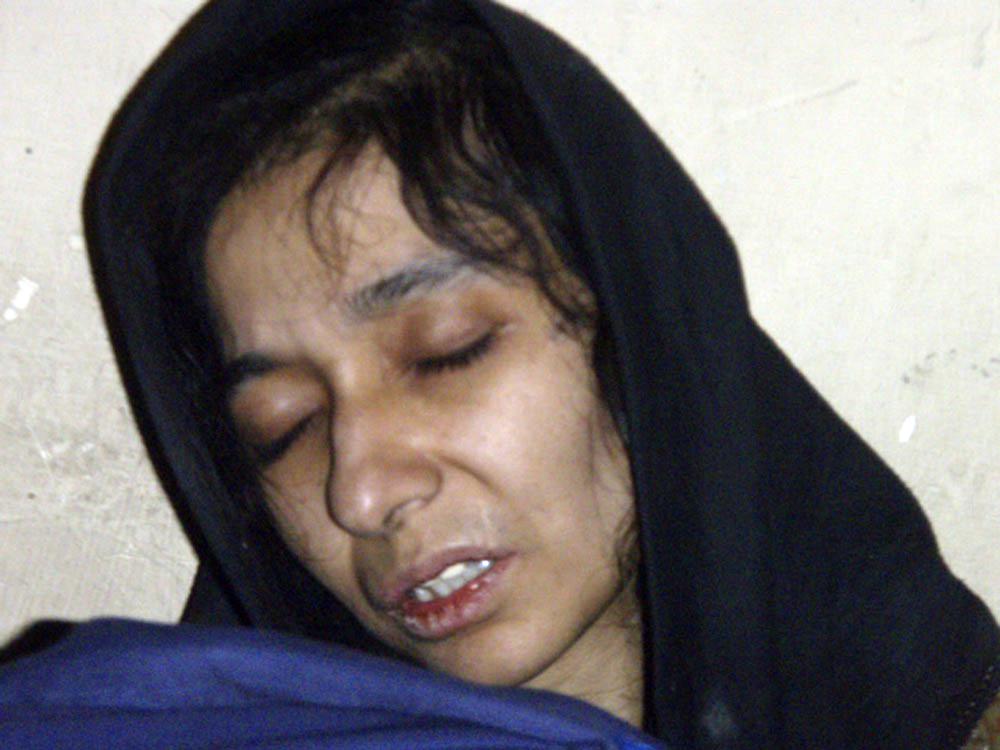khansaheeb
ELITE MEMBER

- Joined
- Dec 14, 2008
- Messages
- 16,999
- Reaction score
- -8
- Country
- Location

Guantanamo’s oldest inmate returns to Pakistan, without trial
Saifullah Paracha once described life at Guantanamo as “being alive in your own grave”.
www.dawn.com
Guantanamo’s oldest inmate returns to Pakistan, without trial
Anwar Iqbal | Baqir Sajjad Syed Published October 30, 2022 Updated about an hour ago
Saifullah Paracha
1x1.2x1.5x
ISLAMABAD / WASHINGTON: The Guantánamo detention camp’s oldest prisoner Saifullah Paracha, a Pakistani businessman, has returned after spending nearly two decades in jail, without trial.
Paracha, 75, was arrested in July 2003 in an international sting operation in Thailand. American authorities alleged he helped in Al Qaeda funding and also tried to assist them in smuggling explosives into the US. He was, however, never formally charged.
The prisoner, who twice suffered heart attacks during detention, once described life at Guantanamo as “being alive in your own grave”.
His lawyer, Shelby Sullivan-Bennis, said: “A man who became like a second father to me over the years that I was his lawyer in Guantánamo Bay was just returned home.
×
“Never charged with a crime, Saifullah Paracha waded through years of hearings — before federal judges and military reps — and he cleared every single benchmark,” she wrote in a tweet posted on her official site.FO welcomes Pakistani citizen’s reunion with family
Another lawyer, Clive Stafford-Smith, questioned why it had taken so long for his client to be released, “although he had been cleared for release for well over a year”.
In Islamabad, the Ministry of Foreign Affairs welcomed his release and confirmed that he reached Pakistan on Oct 29. “We are glad that a Pakistani citizen detained abroad is finally reunited with his family,” the statement added.
In a Twitter post about his release, Foreign Minister Bilawal Bhutto-Zardari said: “Foreign Ministry completed an extensive inter-agency process to facilitate repatriation of Mr Paracha.”
Mr Paracha’s son, Uzair Paracha, held on similar charges, was released in March 2020. Uzair was arrested in March 2003 and was convicted in 2005 by a federal court in New York for providing material support to Al Qaeda. In July 2018, another court rejected the witness accounts that led to his conviction, and he was released two years later. But only after 17 years in prison, like his father.
Saifullah Paracha was arrested two years after the 9/11 attacks that, according to lawyer Sullivan-Bennis, generated fears which “led us to the depths of human depravity — ripping apart families” and holding prisoners for years without trial.
In a tweet posted on her official site, the lawyer said Mr Paracha’s long-awaited release “cuts both ways — an indescribable blessing and a tragic reminder” of the excesses committed after 9/11. “There is no such thing as justice deferred, and after nearly 20 years languishing in an offshore prison – held without charge or trial — to be returned home at age 75 to live out his twilight years with his family,” she wrote.
Mr Paracha, who studied in the US, was accused by US authorities of having contact with some of al-Qaeda’s most senior leaders, including Osama bin Laden and Khalid Sheikh Mohammed. After 14 months at a US military prison in Bagram, Afghanistan, he was transferred to Guantanamo. The Biden administration approved Mr Paracha’s release last year, along with that of another Pakistani national, 55-year-old Abdul Rabbani. However, the process got delayed because of the repatriation agreement between US and Pakistan took some time to finalise.
Thirty-five people are still held at Guantanamo, including Khalid Sheikh Mohammed, named as “the principal architect of the 9/11 attacks” in the 9/11 Commission Report. His lawyer, Clive Stafford-Smith, told BBC he expected more detainees to be freed over the coming months. “I’ve still got four clients there [at Guantanamo], all of whom are cleared for release,” he said, adding that it was an “embarrassment to the US”.
The US military prison in Cuba once housed hundreds of suspected militants. The Washington Post, which maintained a list of Guantanamo, reported that 779 detainees were brought to the prison camp but most of them were released without charge. The US government continues to classify many of these released detainees as “enemy combatants”.
Published in Dawn, October 30th, 2022
We just need to get Aafia Siddiqi out as she has suffered a gross miscarriage of justice:-
Click to copy
RELATED TOPICS
A closer look at the case of Aafia Siddiqui, jailed in Texas
By ERIC TUCKERJanuary 15, 2022
1 of 2
FILE - In this July 17, 2008, file photo, Aafia Siddiqui, possible al-Qaida associate, is seen in the custody of Counter Terrorism Department of Ghazni province in Ghazni City, Afghanistan. The man who authorities say was holding hostages inside a Texas synagogue on Saturday, Jan. 15, 2022, demanded the release of Aafia Siddiqui, a Pakistani woman who is imprisoned on charges of trying to kill American service members in Afghanistan. (AP Photo/ File)
WASHINGTON (AP) — The man who authorities say held hostages inside a Texas synagogue on Saturday demanded the release of a Pakistani woman who is imprisoned nearby on charges of trying to kill American service members in Afghanistan.
The hostage incident ended Saturday night with the hostages safe and the man holding them dead, authorities said.
The woman whose freedom was sought, Aafia Siddiqui, is serving an 86-year prison sentence after being convicted in Manhattan in 2010 on charges that she sought to shoot U.S. military officers while being detained in Afghanistan two years earlier.
ADVERTISEMENT
For the Justice Department, which had accused Siddiqui of being an al-Qaida operative, it was a significant conviction in the fight against international extremism. But to her supporters, many of whom believed in her innocence, the case embodied what they saw as an overzealous post Sept. 11-American judicial system.
A closer look at the case:
WHO IS AAFIA SIDDIQUI?
She’s a Pakistani neuroscientist who studied in the United States at prestigious institutions — Brandeis University and the Massachusetts Institute of Technology.
She attracted the attention of American law enforcement in the years after the Sept. 11 attacks. Top FBI and Justice Department described her as an “al-Qaida operative and facilitator” at a May 2004 news conference in which they warned of intelligence showing al-Qaida planned an attack in the coming months.
TOP HEADLINES
Crush kills at least 151 at Halloween festivities in Seoul
Russia suspends Ukraine grain deal over ship attack claim
Pelosi attack shocks country on edge about democracy threats
What is known about the attack on Speaker Pelosi's husband
Inside an interview room at an Afghan police compound, authorities say, she grabbed the M-4 rifle of a U.S. Army officer and opened fire on members of the U.S. team assigned to interrogate her.
She was convicted in 2010 on charges including attempting to kill U.S. nationals outside the United States. At her sentencing hearing, she gave rambling statements in which she delivered a message of world peace — and also forgave the judge. She expressed frustration at arguments from her own lawyers who said she deserved leniency because she was mentally ill.
“I’m not paranoid,” she said at one point. “I don’t agree with that.”
WHAT WAS THE REACTION?
Pakistani officials immediately decried the punishment, which prompted protests in multiple cities and criticism in the media.
ADVERTISEMENT
The prime minister at the time, Yousuf Raza Gilani, called her the “daughter of the nation” and vowed to campaign for her release from jail.
In the years since, Pakistani leaders have openly floated the idea of swaps or deals that could result in her release.
Faizan Syed, executive director of the Dallas-Fort Worth chapter of the Council on American-Islamic Relations said the group considers Siddiqui to have been “caught in the war on terror” as well as a political prisoner who was wrongly accused through flawed evidence. He nonetheless strongly condemned the hostage-taking, calling it wrong, heinous and “something that is completely undermining our efforts to get Dr. Aaifa released.”
She has also garnered support from accused militants in the United States. An Ohio man who admitted he plotted to kill U.S. military members after receiving training in Syria also planned to fly to Texas and attack the federal prison where Siddiqui is being held in an attempt to free her. The man, Abdirahman Sheik Mohamud, was sentenced in 2018 to 22 years in prison.
WHAT’S THE LATEST ON SIDDIQUI’S IMPRISONMENT?
Siddiqui is being held at a federal prison in Fort Worth. She was attacked in July by another inmate at the facility and suffered serious injuries, according to court documents.
In a lawsuit against the federal Bureau of Prisons, Siddiqui’s lawyers said another inmate “smashed a coffee mug filled with scaling hot liquid” into her face. When Siddiqui curled herself into a fetal position, the other woman began to punch and kick her, leaving her with injuries so severe that she needed to be taken by wheelchair to the prison’s medical unit, the suit says.
Siddiqui was left with burns around her eyes and a three-inch scar near her left eye, the lawsuit says. She also suffered bruises on her arms and legs and an injury to her cheek.
The attack prompted protests by human rights activists and religious groups and calls for improved prison conditions. The activists have also called on the Pakistani government to fight for her release from U.S. custody.
____
Associated Press writers Michael Balsamo in Washington and Acacia Coronado in Austin, Texas, contributed to this report.


